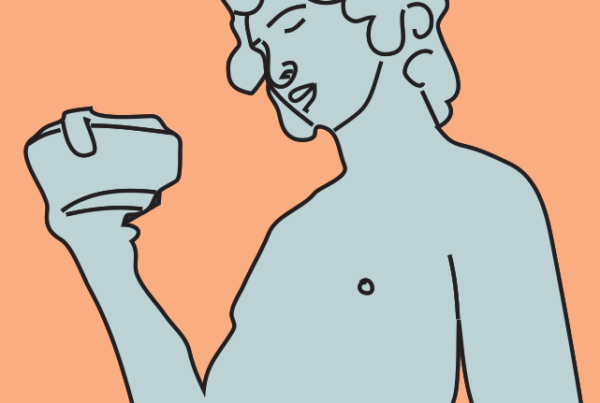

Meiling Geiges
What is it like to be a Psychology student? Three questions for Meiling Geiges (bachelor, second year).
What is the most useful thing that you’ve learned from Psychology?
‘Considering that we are living in times in which there seems to be an ever-growing political divide, I would say that it has been very insightful to study cognitive biases and logical fallacies. For example, confirmation bias prevents us from seeking evidence against our own views, or an ad hominem which is an attack on your opponent’s character instead of their argument. I think that understanding and being able to identify those biases and fallacies can help us acquire a better understanding of opposing views. Ultimately, this might facilitate the process of finding common ground, which will help us unite instead of further divide.’
What do you like and dislike about Psychology at UvA?
‘In our program, there are exams scheduled for every month, instead of once every tri- or semester. What I like about the monthly exams is that students are being encouraged to stay on track with the readings, which allows them to be engaged with the study materials at all times. This also enables regular feedback because after each exam,I find out whether I was capable of applying the newly acquired knowledge or whether it might be beneficial to adjust my study methods.
One thing that could be improved is the lack of practical exposure in the Bachelor’s program. As a component of the first-year’s curriculum, my group and I interviewed a Work and Organizational Psychologist, which helped us to gain a better understanding of what working in that field feels like. I think it would be a great idea if, let’s say, once a month, students are given the opportunity to spend a day with a psychologist at work. This would help students make a better-informed decision regarding their specialization as well as encourage them to practice networking skills.’
Now that our studies are online, do you experience any conflict between your study time and leisure time? How do you solve this conflict?
‘Ever since university has moved online, my bedroom has become a library to study at, a classroom for attending online tutorials, a lecture hall for watching professors teach on Zoom, and even an examination hall for taking exams online. Having to spend the majority of my day at home has definitely made it more challenging to attain a good work-life balance. Prior to education being online, I would study on campus and walk to the gym afterwards. But now that I am studying from home, my gym is not within walking distance anymore, which means that I have to actively schedule my gym sessions. I realized that it benefits me a lot to create a plan for when to study and when to take time off. I think that planning things out and especially sticking to the plan is a good recipe for a healthy work-life balance, especially in times of online education.’

Meiling Geiges
What is it like to be a Psychology student? Three questions for Meiling Geiges (bachelor, second year).
What is the most useful thing that you’ve learned from Psychology?
‘Considering that we are living in times in which there seems to be an ever-growing political divide, I would say that it has been very insightful to study cognitive biases and logical fallacies. For example, confirmation bias prevents us from seeking evidence against our own views, or an ad hominem which is an attack on your opponent’s character instead of their argument. I think that understanding and being able to identify those biases and fallacies can help us acquire a better understanding of opposing views. Ultimately, this might facilitate the process of finding common ground, which will help us unite instead of further divide.’
What do you like and dislike about Psychology at UvA?
‘In our program, there are exams scheduled for every month, instead of once every tri- or semester. What I like about the monthly exams is that students are being encouraged to stay on track with the readings, which allows them to be engaged with the study materials at all times. This also enables regular feedback because after each exam,I find out whether I was capable of applying the newly acquired knowledge or whether it might be beneficial to adjust my study methods.
One thing that could be improved is the lack of practical exposure in the Bachelor’s program. As a component of the first-year’s curriculum, my group and I interviewed a Work and Organizational Psychologist, which helped us to gain a better understanding of what working in that field feels like. I think it would be a great idea if, let’s say, once a month, students are given the opportunity to spend a day with a psychologist at work. This would help students make a better-informed decision regarding their specialization as well as encourage them to practice networking skills.’
Now that our studies are online, do you experience any conflict between your study time and leisure time? How do you solve this conflict?
‘Ever since university has moved online, my bedroom has become a library to study at, a classroom for attending online tutorials, a lecture hall for watching professors teach on Zoom, and even an examination hall for taking exams online. Having to spend the majority of my day at home has definitely made it more challenging to attain a good work-life balance. Prior to education being online, I would study on campus and walk to the gym afterwards. But now that I am studying from home, my gym is not within walking distance anymore, which means that I have to actively schedule my gym sessions. I realized that it benefits me a lot to create a plan for when to study and when to take time off. I think that planning things out and especially sticking to the plan is a good recipe for a healthy work-life balance, especially in times of online education.’



